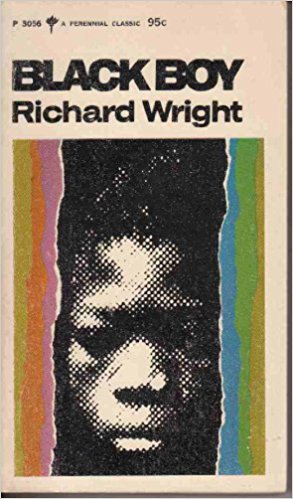Black Boy (memoir)
Artist: Richard Wright
Year: 1945
Date of Action: September 1975
Region: North America
Location: Island Trees Union Free School District, NY
Subject: Explicit Sexuality, Political/Economic/Social Opinion, Religion
Medium:
Confronting Bodies:
Description of Artwork: Black Boy is a a coming-of-age memoir by American author Richard Wright, detailing his tortured youth under the Jim Crow laws of the South, and his eventual move to Chicago, where he establishes his writing career and becomes involved with the Communist Party in the United States.
The Incident: Black Boy was immediately demonized as being anti-American, anti-Semitic, and anti-Christian, as well as for its sexual content and unrelenting portrayal of race relations. In September 1975, several board members of the Island Trees Union Free School District attended a conference sponsored by Parents of New York United. At the conference, the school board members obtained materials listing objectionable books found in many school libraries. Taking this material to heart, in early 1976 the board removed several books from Island Trees High School and Island Trees Memorial Junior High School, including Black Boy by Richard Wright.
Results of Incident: With assistance from the American Civil Liberties Union, the students filed suit in January 1977 in a New York state court. The case was removed to federal court in part because of the constitutional issues involved. In 1979, a federal district court ruled in favor of the school district and dismissed the lawsuit. The district court reasoned that courts generally should not intervene in the operations of the schools and that although removing books may “reflect a misguided educational philosophy, it does not constitute a sharp and direct infringement of any First Amendment rights.”
The next year, a three-judge panel of the 2nd U.S. Circuit Court of Appeals reversed that ruling, finding that the students should have been given the opportunity to prove that the school board’s justifications for removing the books were “simply pretexts for the suppression of free speech.”
After the school board failed to obtain full-panel review before the 2nd Circuit, it appealed to the Supreme Court. In 1982, the high court took the case and in a divided opinion said school officials are limited on when they can remove books from library shelves.
The case was sent back down to the lower courts and within a year the books were returned to the library shelves — after a 4-3 school board vote in January 1983.
(See: Board of Education v. Pico, 457 U.S. 853 (1982))
Source:
BOARD OF EDUCATION v. PICO, (1982)
Island Trees School District v. Pico, Wikipedia
PARTICIPANT IN FAMOUS BOOK-BANNING CASE LOOKS BACK, Newseum Institute, September 30, 2010
Banned Books Awareness: The Censored Side of Black History, Banned Books Awareness, February 8, 2016
